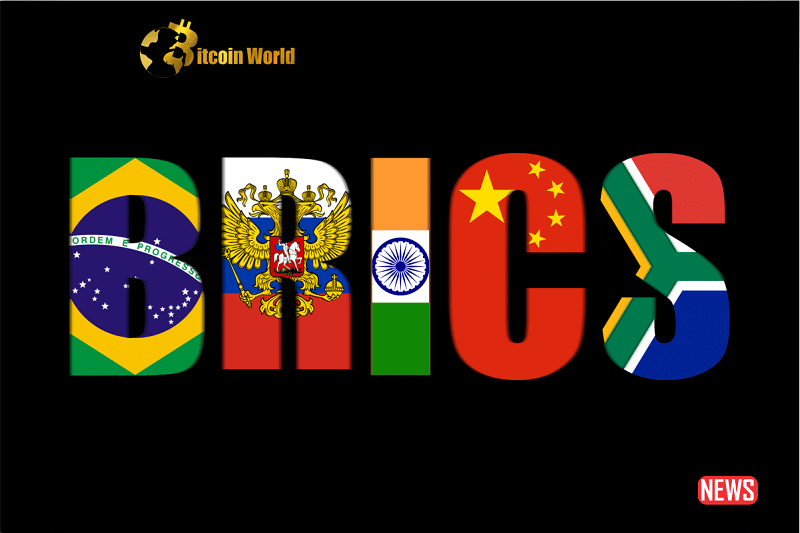Is the global landscape shifting? Cuban President Miguel Diaz-Canel certainly thinks so, and he believes the BRICS coalition is a major catalyst. In a recent interview, Diaz-Canel articulated a powerful vision: BRICS as a formidable force capable of disrupting the long-standing dominance of the United States in global affairs. Let’s delve into his perspective and explore what this could mean for the future.
Why Does Diaz-Canel See BRICS as a Game Changer?
For nations feeling the pressure to align with US policies, Diaz-Canel sees BRICS as offering a breath of fresh air – a viable alternative. He emphasizes its potential as a platform for economic integration, particularly for developing and less affluent countries. Imagine a world where economic partnerships are built on equality, not on the weight of a single superpower. That’s the essence of Diaz-Canel’s argument.
Here are some key reasons why he believes BRICS is so significant:
- A Multi-polar Approach: BRICS champions a world where power is distributed among multiple centers, rather than concentrated in one. This inherently challenges the existing unipolar order.
- Fairer Economic Order: The coalition aims to establish a more equitable international economic system, one that doesn’t disproportionately benefit a select few.
- Rejection of Cold War Ideologies: BRICS nations advocate for fair and equal economic and commercial relationships, moving beyond outdated geopolitical frameworks.
- Partnership over Domination: The emphasis is on treating all participating countries as genuine partners, fostering an environment of mutual respect and benefit.
De-dollarization: A Key Strategy for BRICS?
One of the most impactful aspects Diaz-Canel highlighted is the move away from the US dollar in international trade among BRICS members. Why is this so significant?
- Avoiding Sanctions: By reducing reliance on the dollar, nations can potentially mitigate the impact of sanctions imposed by the US and its allies.
- Promoting Inclusivity: De-dollarization can foster a more inclusive financial system, where transactions are not subject to the influence of a single currency.
- Mutual Benefit: Trading in local currencies or alternative systems can lead to more balanced and mutually beneficial economic relationships.
Envisioning a World Beyond US Influence: What Does it Look Like?
Diaz-Canel envisions a future where the global order is not dictated by the United States, the IMF, or the World Bank. He believes that the BRICS approach can pave the way for a more just, cohesive, inclusive, and democratic international economic landscape. But what tangible changes could this bring?
| Current Scenario | BRICS-Influenced Future |
|---|---|
| Significant influence of US-led institutions (IMF, World Bank). | A more balanced distribution of influence with BRICS playing a significant role. |
| Potential for unilateral sanctions impacting global trade. | Reduced vulnerability to unilateral sanctions through alternative trade mechanisms. |
| Focus on dollar-based international transactions. | Increased use of local currencies and alternative financial systems. |
| Power dynamics often favoring developed nations. | Greater emphasis on the needs and perspectives of developing nations. |
Challenges and Opportunities Ahead
While the vision is compelling, the path forward is not without its hurdles. BRICS nations have diverse economic and political systems, and achieving complete consensus and coordinated action can be challenging. However, the potential benefits are significant:
- Economic Growth: Increased trade and investment among BRICS nations can spur economic growth for member countries.
- Enhanced Security: Fostering stronger partnerships can contribute to greater international security and stability.
- Expanded Opportunities: A more equitable global order can unlock new opportunities across various sectors for a wider range of countries.
The BRICS Coalition: A Counterbalance in Action
The BRICS coalition, comprising Brazil, Russia, India, China, and South Africa, already represents a significant portion of the world’s population and economic output. Their collective efforts to promote economic integration and challenge the dominance of the US dollar are actively reshaping international trade and finance. While the full impact remains to be seen, the direction is clear: BRICS is a force to be reckoned with.
Looking Ahead: What Does This Mean for the Global Order?
Diaz-Canel’s perspective underscores a growing sentiment among some nations: a desire for a more balanced and equitable global system. The BRICS coalition is not simply about economic gains; it’s about challenging existing power structures and advocating for a multipolar world. Whether BRICS can fully realize this vision remains to be seen, but the conversation is undoubtedly gaining momentum. The world is watching as this coalition navigates the complexities of the existing global order, potentially ushering in a new era of international relations.
Ultimately, the rise of BRICS and the perspectives of leaders like Miguel Diaz-Canel highlight a critical juncture in global politics and economics. The push for a more inclusive and equitable international economic order is gaining traction, and the coming years will be crucial in determining the future shape of global power dynamics.
Disclaimer: The information provided is not trading advice, Bitcoinworld.co.in holds no liability for any investments made based on the information provided on this page. We strongly recommend independent research and/or consultation with a qualified professional before making any investment decisions.




